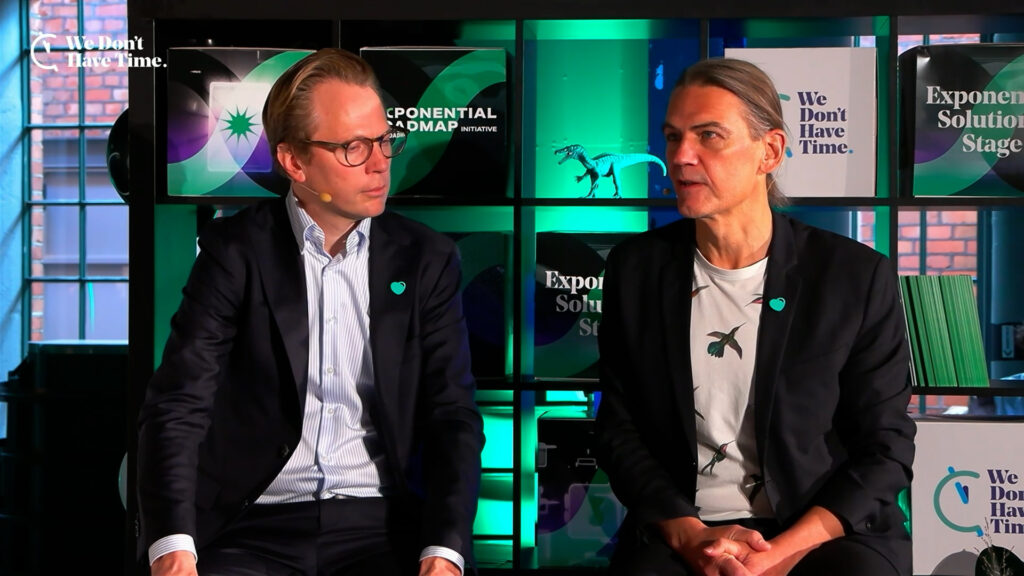Eco-anxiety – this term was first coined in the early 2000s and gained traction a decade later to describe an emotional response to the climate and biodiversity crises. With the COVID-19 pandemic, growing political division, the war in Ukraine, and the genocide in Gaza, a broader “global anxiety” has deepened, capturing widespread distress over the world’s state. Amid this uncertainty, how do we stay on track and capable of taking decisive action toward critical net-zero targets?
At Stockholm’s TechArena ZERO, Nick Nuttall moderated a discussion with Johan Falk, CEO of the Exponential Roadmap Initiative, and Ingmar Rentzhog, CEO of We Don’t Have Time. They explored the questions of how to advance the global climate agenda despite geopolitical crises and fractured alliances. Climate action, they argued, remains a rare area of cooperation – uniting even politically opposed nations like the US and China – as countries must prepare to engage in a “Race to the Top.”
Each and every continent must get their hands dirty
Although Europe once led in establishing a strong climate vision, targets, and reporting standards, China’s rapid green energy expansion and the US’s Inflation Reduction Act now highlight a shift. The so-called Draghi report on the future of European competitiveness warns that the EU is losing ground to both China and the US in tangible green initiatives.
While companies recognize the strategic need to lead in the green transition, Falk and Rentzhog emphasized that nations must also rise to the challenge. Falk noted the urgency for Europe to leverage tools like roadmaps to reclaim leadership in key climate sectors, ensuring competitiveness in the green economy.
However, the discussion stressed that the focus shouldn’t be limited to China, Europe, and the US. A more inclusive and integrative strategy involves major economies taking a value-chain approach, investing in their supply chains to support a global green transition. Many solutions are emerging from developing regions, like Africa, where companies have strong potential for scale—if funding and resources are provided. Falk underscored the importance of incorporating climate goals into a country’s plans for economic growth and development, saying:
This value chain transformation is also an opportunity to distribute wealth across countries. There’s tremendous potential for developing countries without a fossil-based legacy to leapfrog and provide new building blocks and solutions, while also building more value—not just shipping raw materials. I think Europe has an opportunity to work closely on equal terms with Africa, for example, and find partners to build a new economy.
In the Race to the Top, we truly need to integrate climate and nature into financial planning and GDP. Climate plans shouldn’t be a side project; they should be central, as we’re shifting the entire economy. This is crucial for developing countries, where, with already low emissions, the motivation isn’t emissions cuts but raising wealth for their people. That should be the driving force—achieving this through new clean technology.
The discussion highlighted the value-chain approach as a catalyst for international collaboration, fostering a more equitable transition that distributes wealth and mitigates climate impacts recognized as drivers of global inequality. Ultimately, Rentzhog claimed that a joint climate agenda could serve as a uniting force, saying:
We need peace to solve the climate crisis. It’s very difficult to act on a global level while we are making war. But we also need a joint project to secure peace. It used to be free trade—everyone was high on free trade. Now, free trade isn’t the trick anymore. However, countries are increasingly cooperating on climate issues. So, we need climate for peace, and we need peace for climate.


